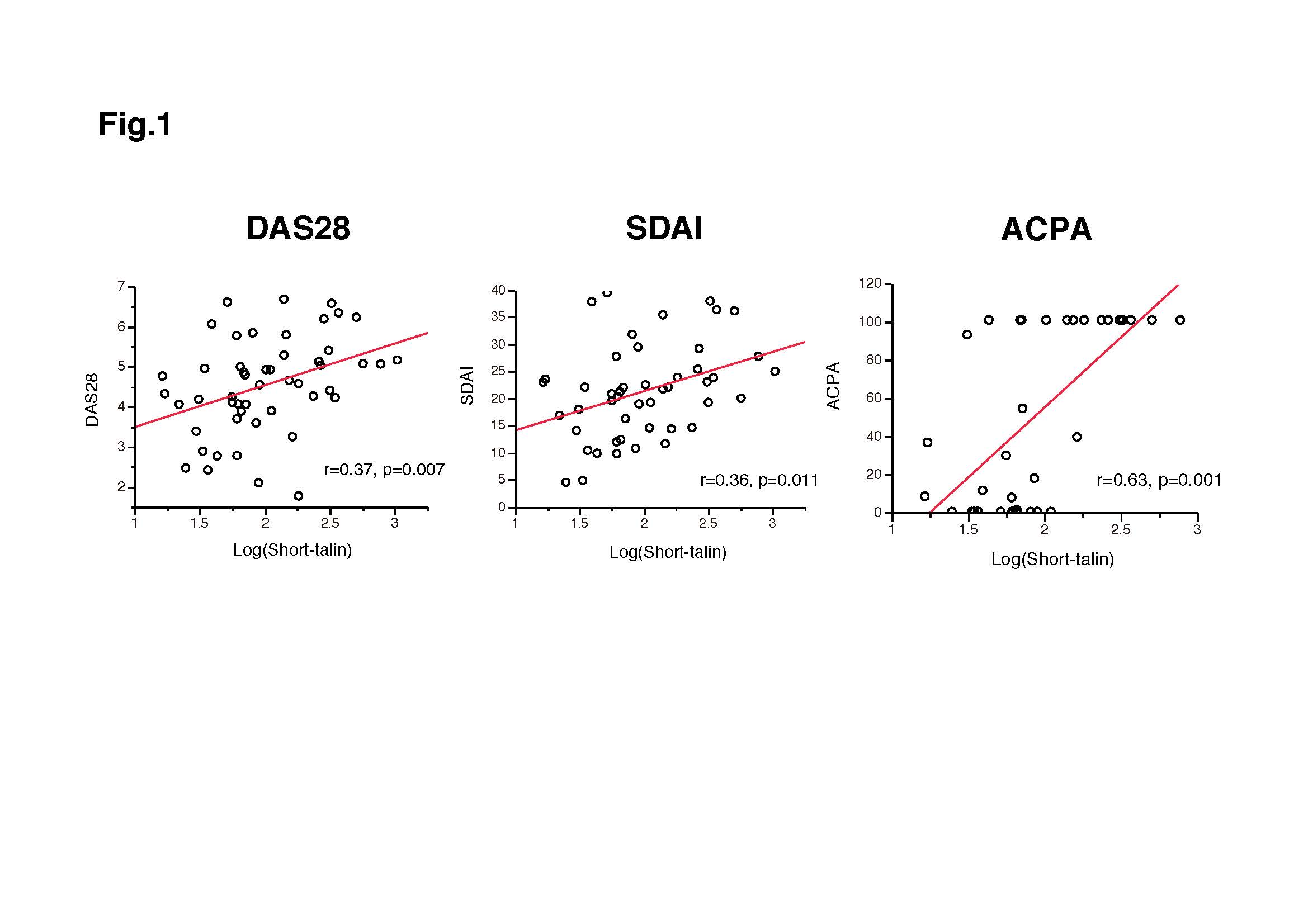Session Information
Session Type: Abstract Submissions (ACR)
Background/Purpose: Talin has been known as a cytoskeletal protein, which, by binding to integrin beta-subunit, enhances the inside-out signaling from intracellular to extracellular of integrins, cell adhesion, cell migration, and causes chronic inflammation and angiogenesis. Last 2012ACR meeting, we have reported that intracellular talin in RA patients is cleaved into short-talin and expressed predominantly in plasma. In 2011ACR meeting, we have demonstrated higher sensitivity and specificity of the plasma short-talin than those of anti-CCP antibody (ACPA). Although several RA biomarkers have been reported, some of them are not independent of the inflammatory markers like CRP and ESR due to the usage of the algorithm combined with them. In this paper, we investigated whether the plasma short-talin can be an RA biomarker independent of the inflammatory markers.
Methods: RA was diagnosed as the 2010 Rheumatoid Arthritis Classification Criteria. Plasma and sera were obtained simultaneously from 51 RA patients (Age, 60.9±14.4 y/o; DAS28, 4.54 ± 1.20). Sixteen (31.4 %) of these 51 patients were untreated, and 18 patients (35.3%) were treated with biologics DMARD at the time of collecting blood samples. Plasma short-talin was quantified using a sandwich ELISA with anti-short talin capture and detecting antibodies. Serum ACPA was measured using a commercial ELISA kit. RA activity at the time of collecting blood samples was estimated using DAS28, SDAI, and CDAI.
Results: The expression of the plasma short-talin was significantly correlated with DAS28 (r=0.37, p=0.0070), SDAI (r=0.36, p=0.011), CDAI (r=0.32, p=0.030), and ACPA (r=0.63, p=0.001) (Fig.1). However, plasma short-talin level was not correlated with ESR, CRP, and MMP-3.
Conclusion: The expression of the plasma short-talin could reveal the RA activity and can not only be an RA diagnostic marker, but also an RA monitoring biomarker independent of the inflammatory markers like ESR and CRP.
Disclosure:
K. Tsuzaka,
Kaytee Bio,
4;
M. Takao,
None;
J. Nishida,
None.
« Back to 2013 ACR/ARHP Annual Meeting
ACR Meeting Abstracts - https://acrabstracts.org/abstract/plasma-short-talin-is-a-new-rheumatoid-arthritis-monitoring-biomarker-independent-of-the-inflammatory-markers/

